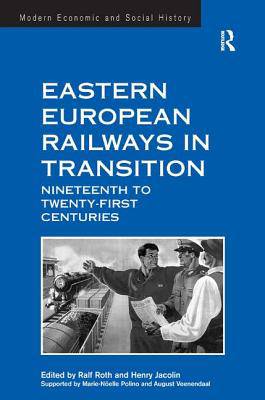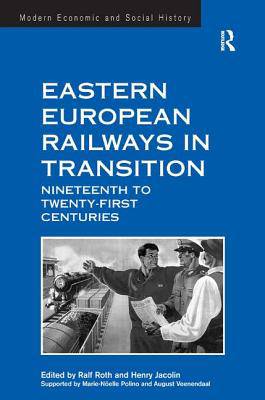
- Afhalen na 1 uur in een winkel met voorraad
- Gratis thuislevering in België vanaf € 30
- Ruim aanbod met 7 miljoen producten
- Afhalen na 1 uur in een winkel met voorraad
- Gratis thuislevering in België vanaf € 30
- Ruim aanbod met 7 miljoen producten
Zoeken
€ 343,45
+ 686 punten
Uitvoering
Omschrijving
In this volume, leading transport history scholars take a fresh look at the impact of the Cold War upon European railways both before and after 1989. As well as addressing the development of eastern and central European railways, the book examines how transport links have been reconnected and reconfigured in the twenty years since the reunification of Europe. In particular, it focuses upon the former communist countries and how they have responded to the challenges and opportunities railways offer both nationally and internationally.
Specificaties
Betrokkenen
- Auteur(s):
- Uitgeverij:
Inhoud
- Aantal bladzijden:
- 428
- Taal:
- Engels
- Reeks:
Eigenschappen
- Productcode (EAN):
- 9781409427827
- Verschijningsdatum:
- 22/08/2013
- Uitvoering:
- Hardcover
- Formaat:
- Genaaid
- Afmetingen:
- 156 mm x 234 mm
- Gewicht:
- 775 g

Alleen bij Standaard Boekhandel
+ 686 punten op je klantenkaart van Standaard Boekhandel
Beoordelingen
We publiceren alleen reviews die voldoen aan de voorwaarden voor reviews. Bekijk onze voorwaarden voor reviews.







